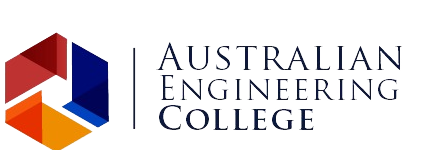About Melbourne
Melbourne is the capital city of Victoria with a population of over 4 million people. It is Australia’s second largest city. The city offers wonderful experiences, a great climate, friendly people and quality education. Situated on the Yarra River and around Port Phillip Bay, the city has beautiful beaches and excellent water sport facilities. It is a spacious city with many parks & gardens, sporting venues, and scenic attractions. One quarter of Melbourne’s population was born overseas, making it one of the world’s most multicultural cities. Melbourne is often ranked amongst the world’s most liveable city each year, due to factors such as: Healthcare system, education, stability, culture, environment, infrastructure and personal safety.
Climate:
Melbourne has a temperate climate with four distinct seasons:
-
Winter (June - August) Temperatures range from 10-15°C
-
Spring (September - November) Temperatures range from 17-22°C
-
Summer (December - February) Temperatures can rise above 35°C
-
Autumn (March - May) Temperatures range from 17-24°C
Events and Entertainment:
Melbourne is a cosmopolitan city that is full of life. The city hosts a variety of festivals, cultural and sporting events, including the Australian Grand Prix, the Australian Open, the Spring Racing Carnival, Melbourne International Arts Festival, Melbourne Food and Wine Festival, Spring Fashion Week and the Melbourne Fringe Festival, Melbourne International Comedy Festival, Chinese New Year Parade, Moomba Parade. Melbourne is Australia’s festival capital, with free events held in city and community venues each month.
Transport:
Melbourne has an excellent public transport system with trains, trams and buses providing an extensive network throughout the city and suburbs, if you plan to use public transport you will need to buy a myki travel card from a train station or convenience store. Taxis are plentiful and safe, and are available 24 hours a day.
The most popular transportation options from the airport include Uber, taxis, and the Sky Bus.
How to get to Australian Engineering College
Buses:
Bus routes arrive in front of the building are 200, 207, 250, 251, 302, 303, 304, 305, 309, 318, 350, 905, 906, 907 and 908.
Tram:
Tram routes arrive near of the building are 59, 19, 57 in Elizabeth St and the routes 1, 3, 5, 6, 16, 64, 67 and 72 in Swanston St.
Train:
The closest train station to our building is Melbourne Central Station, which is a 4-minute walk.
Cost of Living:
Australia provides good quality and affordable accommodation. Students will need $ 29, 710 per year (excluding tuition) to cover living expenses including accommodation, food, transport, entertainment, clothing and books.
-
Hostels and Guesthouses - $90 to $150 per week
-
Shared Rental - $95 to $215 per week
-
Homestay - $235 to $325 per week
-
Rental - $185 to $440 per week
Other living expenses:
-
Groceries and eating out - $140 to $280 per week
-
Gas, electricity - $10 to $20 per week
-
Phone and Internet - $15 to $30 per week
-
Public transport - $30 to $60 per week
-
Car (after purchase) - $150 to $260 per week
-
Entertainment - $80 to $150 per wee
Student Banking:
International Students can now open a bank account before they arrive in Australia. Most leading banks offer a comprehensive range of personal, business and institutional banking products and services. By choosing a major Australian bank, students can be assured their money is safe; and bank branches, ATMs and other banking services are conveniently accessible.
One of the most common banks for students are:
-
Commonwealth Bank of Australia
-
Westpac Bank
-
ANZ Bank
-
National Australia Bank (NAB)
Accommodation:
The following types of accommodation are available for international student:
Home Stay
This option is an opportunity for students to live in a private home, with a local family, couple or single person and learn about Australian life. You may need to compromise with living arrangements as you will need to fit in with the household’s routines and expectations. You will need to think about the things that are important to you. You may need to ask about how adaptable meal times are in relation to your studies and other commitments. There are different types of home stay arrangements:
Cost: $235 to $325 per week
Full Board
Usually includes a furnished room (bed, desk, lamp, and wardrobe), three meals per day and bills (electricity, gas and water, but not telephone and internet). Some home stay providers may even do your laundry.
Cost: A$110.00 – A$270.00 per week
Half Board
Usually includes a furnished room (bed, desk, lamp, and wardrobe) and bills (electricity, gas and water, but not telephone and internet). You can use the cooking and laundry facilities in the house.
Cost: A$ 80.00 – A$ 100.00 per week
Lease/rent
Renting an apartment or house is done through a real estate agent. You must sign a contract called “lease” to rent the house, either month-by-month, or sometimes a 6-month, 12-month or 2-year lease is required. The lease entitles you to private use of the property for the duration of the lease. The advantage of this is privacy and independence.
You must pay a bond (the equivalent of one month’s rent, to cover any damage you may do to the premises).
You are responsible for paying all bills (except council rates), maintenance of the property and providing all your own furniture and household items. If you choose a house or apartment in a popular area, there will be much competition. The real estate agent selects the tenants who they believe are the most stable and able to meet the requirements of the lease.
Cost (shared accommodation): A$185.00 – A$440.00 per week (unfurnished)

